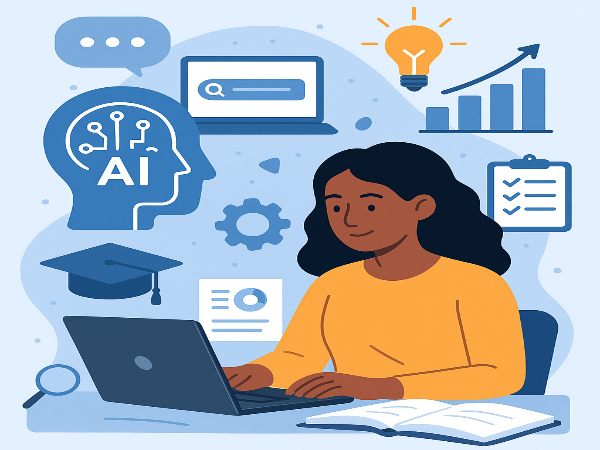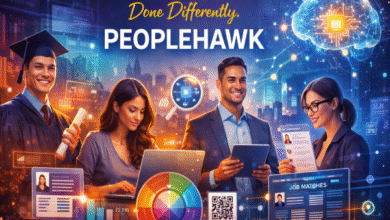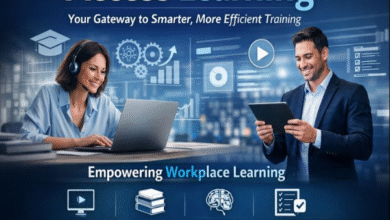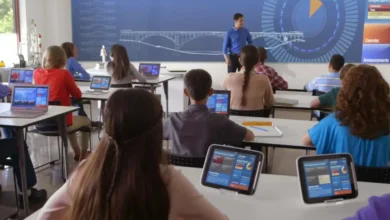AI Is Redefining Skills-Based Learning and Career Readiness

The current technological evolution is driven by the invention of AI, and it’s been life-changing. Many careers and industries have been impacted, including the educational systems. With AI being further developed to redefine several processes, the question arises: has it also been altering the skill-based learning as well as career readiness? In this blog, we will go into the details of Artificial Intelligence and how it is redefining the regular learning system.
Artificial Intelligence in Education and Career
AI was considered a technology to be restricted only to the programmers and scientists, but it has made its way to our classrooms, workspaces, regular life, and even research labs. Students find it easier to just ask ChatGPT for any academic-related queries rather than going on the search engine and clicking through different sources themselves. It is not only time-saving, but students are satisfied knowing it offers information from the most credible source.
Similarly, students have found AI to be helpful in even writing their research papers, just as work employees are able to execute their daily tasks. AI has come a long way to be helpful in redefining the many academic and career insightful tasks that prepare one for the skills and readiness of a career.
Key Ways How AI Is Redefining Education and Career
AI has impacted many traditional practices in the educational system as well as in workspaces. With many administrative processes being optimized, several skill development approaches are being personalized and made more interactive. Rather than posing a threat, it is shifting the focus to adapting to an AI-integrated environment for both work and studies. Here are some key ways it is reshaping the educational and career systems:
Personalized Approach to Learning
The traditional one-size-fits-all culture has become irrelevant with the arrival of AI. The AI-integrated systems have taken a more custom approach to assess one’s learning capabilities and personal preferences, to alter the educational content and activities. This helps one to target the weaknesses and strengths among students for better learning. This approach has helped increase the focus time duration and ability to grasp information among many scholars. This has been a game-changer for institutions and educators to have all their students advance at the same pace and understanding.
Quicker Feedback for More Flawless Learning
AI testing systems are more efficient in providing results of assessments, which can help students in analyzing their mistakes and also gain systematic feedback from AI to immediately improve their understanding and skills.
Research and Academic Writing
While academics seem to be compromised due to the digital shift, there have been advancements in optimizing some lengthy processes as well, such as writing a thesis and research papers. Students already have an option to hire a dissertation writer online that can do the hectic steps of research and citations for them, but now AI-based writing platforms have optimized the tasks further by making it a matter of a few minutes to write the whole dissertation.
Trend Analysis and Skills Gap
AI has been optimizing analytical processes greatly for corporations by making quick judgments after market trend analysis. It can help identify areas of improvement, opportunities, and investment. Furthermore, it can also assess employees’ work performances and highlight the skills gap, which may allow them to address those weaknesses by working on upskilling.
AI In AR Simulations
Artificial intelligence has been recruited in simulation-based learning systems for practical fields such as Medicine and Science. Trainees can be trained through Augmented Reality experiences that assess the performance of the individuals in these simulations, and later, AI can offer a deep report on their performance. The practical assessments in education and even careers have been greatly reshaped through this integration.
Administrative Tasks Optimization
In education and even careers, AI has greatly helped in improving the time to do the lengthy tasks that took an individual days to sort through. Employing organizations have AI-integrated software that filters the resumes being received depending on their positions, skills, and qualifications, which shortlists potential candidates for the interviews. Similarly, educators have such grading software that instantly grades exams or test papers. AI technology can even assess and offer feedback on the mistakes of a student, helping them develop skills in a much faster and efficient way.
Conclusion
AI tools and software have widely taken over the education system, and many corporations are making great use of it as well. Academic professionals and scholars can access organizing tools like Zotero, as well as an AI literature review generator, to be able to craft a more compelling and well-cited dissertation. Students in this fast-paced world are able to manage their life and studies better with such AI-integrated tools, and this redefinition of entire systems is helping in more personalized and sculpted skill development and career readiness among individuals.



